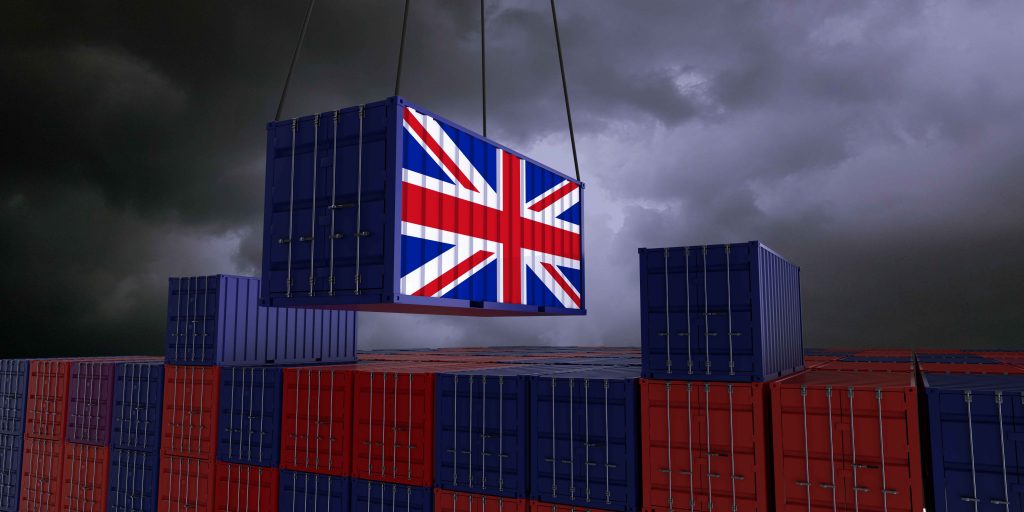Nicola Thomas examines how British food and drink brands can harness their core strengths to engage buyers and consumers in global markets
‘Made in Britain’ is an internationally recognised hallmark of quality, innovation and security. When it comes to food and drink, the sophisticated and demanding nature of our grocery retail sector means that UK manufacturers produce exceptional products to some of the highest food safety, environmental and animal welfare standards in the world.
Pre-Covid, consumers increasingly wanted to know where their food was coming from, but there is now a more universal demand for healthy, safe products from a secure supply chain. In addition, the rapidly expanding middle classes, Gen Z, and urban consumers in emerging markets have the appetite for – and purchasing power to buy – trusted Western brands with clear sets of values as a confirmation of upward social mobility. Not only can British products meet these demands, but they may potentially command a premium price, particularly where peace of mind is paramount.
We recently polled our international Food and Drink Exporters Association (FDEA) distributor community on the factors which attract them to buy British products over those from other countries.

Quality came out top, followed by provenance, heritage, innovation and NPD. Exploring these elements in more depth with our in-market partners around the globe, we discovered that whilst an appreciation for quality – both in terms of products and packaging – is pretty much universal, the other attributes vary in importance by territory:
- In ASEAN countries and Japan, for example, sentiment across the region is fairly uniform, with British brands often viewed as sophisticated, luxury and rich in heritage, particularly in categories like speciality teas, biscuits and spirits.
- In more developed nations including France and the US, a strong sense of authenticity and premium are amplified with our quirkiness and signature sense of humour. Links to heritage and history, through the monarchy or craftsmanship for example, also make British products distinctly appealing.
- In Commonwealth countries and nations with a large British diaspora population, products from Britain are highly regarded for their level of innovation and recognised as trusted, traditional brands with a strong reputation for food safety.
Of course, despite all this positive international sentiment, Britishness per se does not mean our products sell themselves, particularly as current geopolitical headwinds look certain to drive increased protectionism around the globe. Coupled with economic instability and the sustainability megatrend, consumers and retail buyers may well double down on purchasing ‘local’, i.e. domestically produced goods, to boost national economies and lower their environmental impact. They may also become more price sensitive when it comes to imported products in general.
We Brits are not the only ones pushing a strong national food and drink identity in export markets. For example, the ‘Australian Made’ campaign is widely promoted in Asia, where Australian brands have a much stronger presence due to geographic proximity and the country’s long-standing trading partnership with nations in the region.
The price of imported products in general can be a barrier to purchase, cited by almost one third of respondents in our FDEA distributor survey as the main challenge when choosing British brands. In addition, local manufacturers have also upped their game in recent years in terms of the quality and marketing of copycat brands such as ‘Hand Cooked’ crisps, so consumers increasingly have access to premium products at a lower price point from domestic suppliers.

We have seen that many retail buyers and distributors have rekindled their desire to buy British food and drink post-Brexit, as they simply can’t find products offering the same innovation and quality elsewhere. However, they now have to balance the strength and appeal of Britishness with the additional operational hurdles that need to be overcome to get goods into the market.
So how can you capitalise on ‘Brand Britain’ when selling to buyers and consumers overseas, particularly if your products sit outside those overtly ‘British’ whisky, biscuit or tea sectors?
- Different levers need to be pulled depending on your product category, the British attributes most appreciated in individual target countries, and even specific retailer values.
- Incorporating the Union Jack on your packaging can trigger positive feelings in-store when shoppers are on autopilot. However, this unmistakeable sign of Britishness means your credentials will come under intense scrutiny and may also highlight the fact your product has travelled a long way. Use judiciously!
- Capitalise on the positive sentiment towards British-made goods by conveying appropriate messages around quality, innovation, heritage, etc. through your trade and digital marketing and pitches to buyers. Whilst the overarching attributes of your products and packs remain the same, shift the level of emphasis by market or region to resonate with local consumers. Evidence where possible with trust marks, awards, endorsements and local consumer panel feedback.
- Validate your price positioning: when paying a premium for products, especially imported ones, consumers are more likely to interrogate their credentials, so in-store promotion should clearly communicate the benefits of buying British. For categories such as dairy, meat or cereals, link product attributes back to wider UK production methods and USPs. QR codes and signposting to further sources of information housed online can provide reassurance that claims you make are genuine.
- In addition to researching competitors in your category, look at other national food and drink campaigns and the marketing messages that sit behind them. Australian Made, for example, pushes fresh and natural qualities at cost-effective prices. Be prepared to counter these country USPs, especially those around sustainability and environmental impact.
- Join a UK group at international trade shows, which our survey highlighted as the number one vehicle for overseas distributors seeking new products to add to their ranges. We run these group stands at all the leading industry trade shows around the world including Anuga, Sial, ISM and Food & Hotel China. Under the GREAT banner (the UK’s international communications programme), we are a clear destination for buyers at these exhibitions. In addition, participation raises your profile with local British embassies and distributors through the accompanying trade activities, PR and social media campaigns.
‘Made in Britain’ undoubtedly enjoys a predominantly positive image on the global stage when it comes to food and drink. However, it is important to avoid taking international demand for British products for granted, especially as imported goods look set to come under more intense scrutiny in the future.
Key to success are:
1) Understanding how core characteristics such as quality, heritage and innovation play out in different territories around the world.
2) Carefully positioning your products so that they can compete against food and drink from countries with equally strong national identities, and
3) Adapting your messaging around the British attributes of your products to maximise resonance with local consumers and buyers.
If you are interested in joining a UK group stand at any of the major overseas food and drink trade shows, recruitment is now underway for the 2026 programme. Please contact fdeateam@ukfdea.com for details.
Nicola Thomas is a Director at the UK Food and Drink Exporters Association (FDEA)






